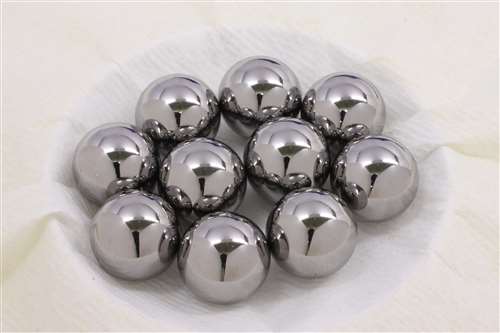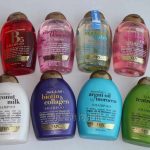Various types of steel balls with different applications and uses vary upon the industrial range like from gas to oil to cosmetics. Every ball has a specific purpose. The tungsten ball is commonly known as tungsten alloy ball, or tungsten carbide ball made from WC powder with binders such as cobalt, nickel, etc.
Moreover, these balls are famous for wear resistance, high hardness, bending resistance, and corrosion resistance. Therefore, here we will discuss some applications with extreme conditions, uses, composition, and grads of tungsten carbide balls.
Grades of tungsten ball
There are two series of diverse grades depending upon tungsten balls’ application: WC-Co grades and the WC-Ni grades. In the WC-Co grades, the binder content range from 6 percent to 25 percent. Also, the grain size of these is between 0.4 to 3 μm.
On the other hand, WC-Ni grade is an optimum choice for corrosion-wear situations, which have the resistance of pH 2 to 3. Further, these grades retain WC as the substitute if Co for Ni and as hard phase. Also, they show thermal and mechanical properties, just like WC-Co grades.
Composition of the Tungsten Carbide balls
Each tungsten carbide balls are manufactured differently depending upon the functions, application, and use in industries. The tungsten carbide ball is made from carbon atoms and chemical compounds containing equal parts of tungsten. Also, the raw form of these balls is a powder that can be easily pressed into the required shape. Composition of tungsten ball includes:
Tungsten Carbide between 93.5% – 94.5%.
Cobalt ranges from 5.5% – 6.5%.
These chemicals make tough and strong bearing balls than steel balls. Moreover, its compressive strength is 750-790 KPSI, and the final tensile strength is 220,000 psi. Additionally, have the hardness is between 90 and 92.
Uses and application of tungsten carbide balls
Heavy machine tungsten
Tungsten ball applications are based on high-wear resistance and hardness requirements. They have higher performance and stability because of which they are used in heavy machinery. They are also more flexible and easily used in heavy machinery and operations as they are much stronger than stainless steel and chrome.
Industrial spray
The tungsten balls are also used for an industrial spray for daily operations apart from heavy machinery. They help them to regulate the flow permitting to the requirements. Additionally, they can be increased and decreased according to the specific material requirement. Also, it avoids wastage as it utilizes excessive pesticides.
Applicators
Apart from this, it is un-brittle and easy to process due to the high melting point. It is used in applicators as it has a high melting point. The tungsten alloy balls can be used with other metals like iron and nickel, enhancing their properties.
Moreover, among all the tungsten balls, the carbide balls are mostly used for heavy applications. Further, used for ball screws, flowmeters, bearing, valves, tracers, and tips for gages, and many more.
Petroleum drilling industries
The petroleum drilling industries also prefer to use a tungsten carbide ball. They are multiple tasking tools that can make the work much more comfortable, and that is why used for various industrial applications. Further, the tungsten carbide balls’ strength and hardness help in the hard branding down the hole-tool. Moreover, it ensures that the task is completed predictably by keeping the pressure intact and ensuring the process’s accuracy. As a result, these balls are the necessary application for the petroleum mining industries.
Ballizing
Ballizing is a process of finishing holes and tubing in the metals, a low-cost method to sizing. Moreover, if you pressurized a huge ball through a hole, it will be resized into your desired size within seconds. Further, pressing a high precision ball through a small metal hole will help you obtain dimensional accuracy and remove the tool marks. Hence, the ball compresses to a much improved and standard hardened surface and a massive enhancement in the hole-tolerance.
Corrosion resistance
Tungsten balls are utilized for specific applications like corrosion resistance. It serves in the heaviest application because of the high resistance binder. ABMA Graded Tungsten Carbide Balls are always used for heavy machinery, making the ball burnishing much more manageable and making the process fast at a low-cost with finishing.
Other uses
These tungsten balls are valuable in the market due to fair wear resistance, dimensional stability, higher strength, durability, and incredible hardness. You can use these balls for different purposes depending upon applications and the environment. You can use them for various purposes like:
Tungsten carbide balls are used in high-load bearings.
They were used in linear bearing in slideways.
It is used in checking instruments.
The manufacturing of heating.
Air conditioning equipment for reliability and durability.
Tungsten carbide balls of this material are often used in the oil and gas sector.
Used in different tooling and automotive industries as it can handle the remarkable heat and weight required.
Tungsten carbide milling balls preferred grinding or milling media, precision hydraulic valves, ball screws, and meters.
Gauging is done through a single ball diameter but with a tungsten carbide ball in the gauge, rapid in-process checking without broken gauges, and jammed risk.
Tungsten carbide ball is often used as pen balls because it contains inert chemical properties.
Tungsten balls are also used in miniature flow control devices, including ink-jet printing and medical instrumentation.
Advantages of tungsten nickel-iron alloy
The tungsten-nickel-iron alloy has good strength, higher sintered density, plasticity, and certain ferromagnetism. Moreover, it has higher plasticity and machinability. They are good electricity conductors that have good thermal conductivity and has excellent absorption capacity for X-rays.
Moreover, it is widely used in the lighting and electric welding industries and also increased the weldability and workability of the application in which it is used. Its tensile strength is 700-1000Mpa and Higher strength and a strong ability to involve radiations up to 30 to 40 percent, which is higher than lead.




